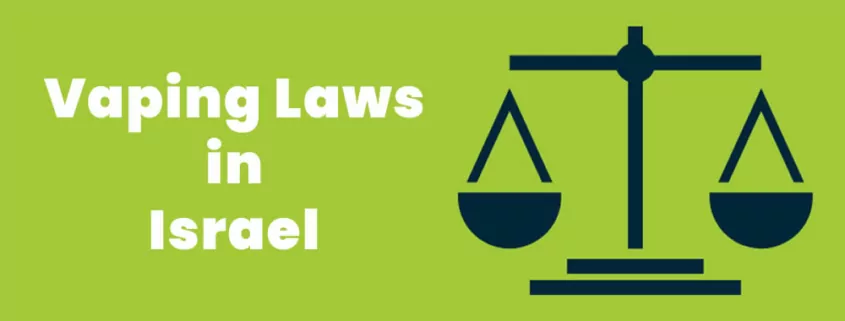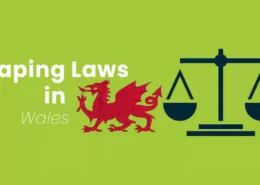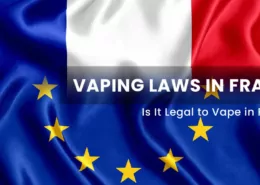Israel Vaping Laws – Is Vaping Illegal in Israel?
The vape revolution has swept through the world and Israel is no exception. As more and more citizens seek to switch from traditional smoking to this healthier alternative, having an awareness of the vaping laws availed in different countries is essential. Therefore, in this thorough overview, we’ll answer the popular inquiry – Is vaping illegal in Israel? – for better understanding all related regulations.
Israel Vaping Laws – Is Vaping Illegal in Israel?
The answer to whether vaping is illegal in Israel is not as straightforward as one might think. While vaping is not entirely illegal, it is heavily regulated under Israeli law. Let’s break down these regulations in detail.
Vaping Products and E-Liquids
In Israel, e-cigarettes and e-liquids containing nicotine are considered tobacco products. This means they are subject to the same regulations that govern traditional cigarettes, such as sales restrictions and advertising limitations.
Age Restrictions and Sales
E-cigarettes and e-liquids containing nicotine can only be sold to individuals who are 18 years of age or older. Retailers are required to verify the age of customers before making a sale.
Advertising and Promotion
Israel has strict laws governing the advertising and promotion of e-cigarettes and e-liquids containing nicotine. Promotions or discounts on these products are prohibited, and advertisements must include health warnings similar to those found on traditional cigarette packaging.
Public Vaping
Vaping is prohibited in public spaces, such as restaurants, bars, and parks. However, there are designated smoking areas where individuals can vape freely.
The History of Israel Vaping Laws
To understand the current state of Israel Vaping Laws, it’s important to look back at how these regulations have evolved over time.
Early Days of Vaping in Israel
Vaping was introduced to Israel in the late 2000s, and it quickly gained popularity as a healthier alternative to smoking. Initially, there were few regulations governing the sale and use of e-cigarettes, but that changed as the government began to recognize the potential health risks associated with vaping.
The 2011 Knesset Decision
In 2011, the Knesset (Israeli Parliament) passed a law requiring that e-cigarettes and e-liquids containing nicotine be classified as tobacco products. This move subjected these products to the same restrictions and regulations that apply to traditional cigarettes.
The 2018 Amendments
In 2018, Israel further tightened its vaping laws by banning the import, sale, and distribution of e-liquids containing more than 20 mg/mL of nicotine. Additionally, e-liquid manufacturers are required to display health warnings on their packaging.
The Controversy Around Israel Vaping Laws
As with any legislation, there are both supporters and opponents of Israel’s vaping regulations.
Proponents of Strict Vaping Laws
Proponents argue that strict regulations protect public health and prevent young people from becoming addicted to nicotine. They also point out that e-cigarettes are not entirely risk-free, and that long-term health effects are still unknown.
Opponents of Strict Vaping Laws
On the other hand, opponents believe that vaping laws should be more lenient, as e-cigarettes are widely considered to be a safer alternative to traditional cigarettes. They argue that over-regulating the industry could push people back towards smoking tobacco, negating any potential health benefits.
Comparison with Other Countries
Israel’s vaping regulations are similar to those in the European Union and the United States. These countries also impose restrictions on the sale, use, and advertising of vaping products to protect public health and discourage youth from taking up vaping.
Israel’s Efforts to Combat Youth Vaping
To address the issue of youth vaping, Israel has taken several steps, including:
- Banning the sale of e-cigarettes and e-liquids to minors under 18.
- Restricting advertising and promotion targeting young people.
- Banning flavored e-liquids that appeal to minors.
- Conducting public awareness campaigns to inform young people about the potential risks of vaping.
The Future of Vaping in Israel
While it’s difficult to predict the future of vaping in Israel, it’s clear that the government will continue to closely monitor the industry and adjust regulations as necessary. Some potential changes on the horizon include:
Further Restrictions on E-Liquids
There is a possibility that Israel may impose further restrictions on e-liquid nicotine concentrations or flavors in an effort to reduce vaping’s appeal to young people.
Vaping Taxation
As vaping becomes more popular, the Israeli government may consider implementing taxes on e-cigarette products, similar to those on traditional tobacco products. This could impact the affordability of vaping and potentially deter some individuals from picking up the habit.
Vaping Education and Awareness Campaigns
The government may also focus on increasing public awareness about the potential risks associated with vaping, as well as the importance of using e-cigarettes responsibly.
FAQs About Israel Vaping Laws
Is vaping illegal in Israel?
No, vaping is not illegal in Israel. However, there are strict regulations governing the sale, advertising, and use of e-cigarettes and e-liquids containing nicotine.
Are there age restrictions on vaping in Israel?
Yes, you must be 18 years old or older to purchase and use e-cigarettes and e-liquids containing nicotine in Israel.
Can I vape in public places in Israel?
No, vaping is prohibited in public spaces like restaurants, bars, and parks. However, there are designated smoking areas where individuals can vape.
Are there any restrictions on e-liquid nicotine concentrations in Israel?
Yes, the sale and distribution of e-liquids containing more than 20 mg/mL of nicotine are prohibited.
Can I import e-cigarettes and e-liquids to Israel?
Importing e-cigarettes and e-liquids is allowed, but they must comply with Israeli regulations, including nicotine concentration limits and packaging requirements.
What are the penalties for breaking Israel vaping laws?
Penalties for breaking Israel vaping laws can include fines, confiscation of products, and, in severe cases, criminal charges.
Conclusion
While vaping is not illegal in Israel, it is heavily regulated. If you’re planning to vape in Israel or are just curious about the local laws, it’s crucial to familiarize yourself with the restrictions and guidelines in place. The future of vaping in Israel remains uncertain, but it’s clear that the government will continue to monitor the industry and adjust its regulations accordingly.
- Pakistan Halts Vape Crackdown Pending Legislation - July 4, 2025
- Wisconsin New Law Banning Sale of Most Vape Products - July 4, 2025
- Vaping Laws in Oklahoma: A Comprehensive Guide for 2025 - July 3, 2025








